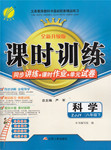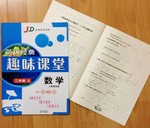阅读理解。
Bargaining is the rule here in Beijing. At least, it is so in most markets and back-street clothes shops.
Bargaining is an art and if you are unfamiliar (不熟悉) with it, we'd like to offer you some advice. The
tips (窍门) here are often used in Beijing but may help you at any place in the world where bargaining is
practiced.
DO NOT say how much you want to pay for an item (物品) unless it's near the end of the bargaining.
Always try and drop the seller's offering price as much as possible before opening your mouth with a price.
DO throw out really low prices like 10 RMB with a big smile.
DO keep smiling from the beginning to the end. The seller usually continues bargaining with a happy
smiling face. Getting angry hardly gets you the price you want. KEEP in mind the price offered by the
seller at the beginning is usually at least 40% over the generally reasonable price. It can be up to 500%
over.
DO have an idea of what the item costs. You can ask your friends, people in the hotel or others you
know, or look at the list below. This is very general and is based (根据) on a market like Xiu Shui. You
may not be able to get the lowest prices at Xiu Shui, especially on a weekend when there are lots of
tourists around.
1. Who is this passage written for?
A. Owners of back-street shops.
B. Businessmen in Beijing.
C.Those who are good at bargaining.
D. Those who travel in Beijing.
2. What is the topic the writer is mainly talking about in this passage?
A. Beijing markets.
B. Bargaining tips.
C. Lowest prices.
D. Sellers' offer.
3. What is the most important thing to do in bargaining with the seller?
A. Keep smiling.
B. Be patient.
C. Don't get angry.
D. Don't say anything.
4. What is NOT included in the tips often used to bargain in Beijing?
A. Find out the true price and go to the markets with friends.
B. Don't offer your price until the end of the bargaining with a smile.
C. Drop the seller's offering price four or five times (倍) until he agrees.
D. Don't go to markets at the time when there are too many tourists.
5. Which of the following can help you get an item you want at the lowest price?
A. Whenever you go shopping,take a price list with you.
B. You can bargain for anything at the price of 10 RMB.
C. The price range (范围) for you to bargain is usually between 40%and 500%.
D. Xiu Shui Market is the biggest shopping center where prices are always reasonable.

 课时训练江苏人民出版社系列答案
课时训练江苏人民出版社系列答案 黄冈经典趣味课堂系列答案
黄冈经典趣味课堂系列答案